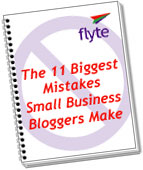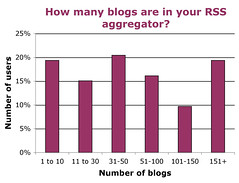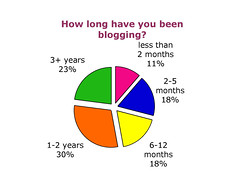In his Fast Forward column in September’s issue of Media magazine, editor-in-chief Joe Mandese highlights a scene from Back to School where Rodney Dangerfield is shopping for textbooks when someone recommends that he buy used ones because the key passages are already highlighted from previous owners. In reply, Dangerfield responds, "But what if they were morons?".
I’m not about to call everyone who’s not bought into the metaphor of customer community, citizen contributed media and dialogue that blogging stands for a moron. That wouldn’t be nice. However, I would argue that the path we’ve traveled to marketing riches before has been written over by a new generation of marketer. Your customer.
A friend of mine, who’s trying very hard to shift the mentality of an old-world company through the power of blogging has this to say about her struggles, which typifies the argument that many are having inside the walls of corporations around the world.
This group is afraid of blogs. They don’t see anything but the danger in blogging. They are afraid of the conversations and afraid to "lose control" of our message.
You want fear? Understand this. In talking with some of the folks at I/PRO recently, they cite a well known fact that the major panel based web ratings firms like ComScore and Nielsen have a pretty good idea of what’s happening on the top 100 sites on the web. They know little about what’s really going on in the long tail, which is where I/PRO’s ‘sweet spot’ lies, based on their methodology of auditing sites well beyond the top 100. Media planners around the country are waking up to old media, and even the top 100 sites, becoming less relevant to the greater population than the millions of blogs that make up the long tail.
I think that the tagline for the citizen contributed media world should be "The Long Tail Wagging The Old Media Dog." Because that’s what old media, and an old media command and control mindset really is. Just an old dog. How ironic that ‘cynicism’ is the Greek word for ‘a dog’. (taken literally, the ‘piss on ideas’)
For those who fear the new media, blogging infiltrated world, the only real safe path is in partnership with your customer. A change of attitude is what’s required here. An attitude that the conversation, community, citizen participation and the Internet as one great big wonderful media lab is what’s required here.
The point here is that marketers need to always be asking the question "but, what if they were wrong?" (let’s not call anyone morons here). What if what I know about marketing, my customers, and what I think about blogging is wrong, or at best, misguided.
Yeah, what if…


 Arieanna’s section on the latest bit from our survey—
Arieanna’s section on the latest bit from our survey— A little while ago we launched a survey of Qumana users to better understand both how they are using Q, but also more about them and their blogging. Arieanna’s first post on the results of the survey is really good—
A little while ago we launched a survey of Qumana users to better understand both how they are using Q, but also more about them and their blogging. Arieanna’s first post on the results of the survey is really good—




